‘Return Conversations’ Premieres With Masterclass On Creative Arts
ACCRA, GHANA – 25th September 2020
‘The Return Conversations,’ a pivotal part of the Beyond the Return project is set to premiere with a virtual Masterclass on 30th September 2020 at 4pm. Under the theme, ‘Black Stories Matter; Forging Collaborations for the Development of Ghana’s Creative Industry,’ the Masterclass will feature industry players from the U.S.A. and Ghana who will share information and knowledge and create opportunities to discuss collaborative efforts.
The panel will be moderated by Professor Eleanor Earl, a film and television content producer, entrepreneur, and educator and Ivy Prosper, a Media Professional and Social Media Manager with the ‘Beyond the Return‘ Secretariat.
“These conversations are relevant right now especially as the spotlight on telling stories from the Black and African perspective is increasingly important in these times. As more people from the diaspora are looking for ways to collaborate with continental Africans, having conversations like this is the first step,” said Annabelle McKenzie, Manager of the ‘Beyond the Return’ Secretariat.
The program is being coordinated by the Ghana Tourism Authority in conjunction with the Creative Arts Council and TheBridgeZone. According to Akwasi Agyeman, CEO of the Tourism Authority and coordinator of the Beyond the Return project, “This will be the first of a series of conversations between Ghanaians and the African diaspora on topics that came up during last year’s successful ‘Year of Return’ campaign. We are building on the success and the feedback we gathered last year”.
C.E.O. of TheBridgeZone, Anthony Bart Appiah, says, “It is important for Black people to tell their own stories. We want to help bridge the gap in creativity between Ghana and the United States.”
The program will be broadcast worldwide on social media channels for ‘Beyond the Return’, Ghana Tourism Authority, and locally on Hitz FM 103.9.
The Masterclass intends to focus on key areas in the creative industry including fashion, art, music, animation/ gaming, and film. These are all industries where Ghana’s creative arts community seeks to build and develop in ways that can help them reach audiences across Africa and beyond its borders. President of the Creative Arts Council, Mark Okraku Mantey, has helped to organize members of Ghana’s creative community to participate in this important event. Invited guests who attend in person, will participate in a live Q&A session that will take place in Ghana.
Panelists include Actor and Producer, Lamman Rucker, President of Production for the Narrative Film Group, Shelby Stone, former NBA Star and Entrepreneur, Baron Davis, Fashion Designer and Interior Design Consultant Etu Evans, Music Mogul, Film Producer and Investor, Vassal Benford III, CEO of Prolific Media Holdings LLC, R.J. Bucaria, Project Manager for Digital Entertainment and Media for the Georgia Dept. of Economic Development, Asante Bradford, Celebrity Hair Stylist, Philonese West and Award-Winning Producer, Director and Writer Chris Roland.
Ghana’s Minister of Tourism, Arts and Culture, Hon. Barbara Oteng-Gyasi, will deliver a statement during the event. As the sector minister, her presence solidifies the importance of such an event when it comes to building Ghana’s creative industry and finding ways to collaborate with the diaspora communities who bring skills and knowledge that can be shared.
The event will be on social media channels for ‘Beyond the Return’ (@beyondthereturn) and Ghana Tourism Authority (@ghanatourismauthority) and locally on Hitz FM 103.9.
For more information on this upcoming event, contact the ‘Beyond the Return’ Secretariat office by email at support@beyondthereturngh.com.
Wear Ghana Ambassador, Miss Brandina Djagba (Mama Africa) Calls On GTP Management
The Wear Ghana Female Ambassador, Ms. Brandina Djagba popularly known as “Mama Africa” on Wednesday, 16th September, 2020 paid a courtesy call on the Management of GTP, the number one local print and textile manufacturing company in Ghana.
The management team of “Mama Africa” was received at GTP by the Marketing Manager, Rev. Steve Badu and the Sales Director, Mr. Cecil Chinery. The management team included Kofi Atta Kakra Kusi, a PR and Marketing Practitioner with the Ghana Tourism Authority, Benjamin Kwadey, Filmmaker and Founder of Benfrank Entertainment House Productions, Wendy Smith – Walker, CEO of Wendy L’artisane (Fashion Designer), Selorm Dzidzienyo, CEO of Kellyvat Ventures Ltd and Nathaniel Okoe Tettey, CEO of Strategic Images and an influencer.
The courtesy call was necessitated by the fact that, the National Commission on Culture (NCC) had appointed “Mama Africa” as the “Wear Ghana Female Ambassador”. She therefore took the opportunity to express her deepest appreciation to the Executive Director of the NCC, Mrs. Edna Nyame and management for the honor done her and promised to work hard to justify the confidence reposed in her by the Commission.
Reacting to the appointment, the Marketing Manager, Rev. Steve Badu congratulated “Mama Africa” on her appointment and assured her and the management team of GTP’s support in diverse ways and admonished her to be an Ambassador worthy of emulation.
Both teams discussed a mutually beneficial relationship to promote the “Wear Ghana” agenda which is a major part of the NCC and Ghana Tourism Authority’s flagship campaign geared towards the promotion of domestic tourism dubbed, “See Ghana, Eat Ghana, Wear Ghana and Feel Ghana”.
The National Commission on Culture is a government organisation whose core mandate and vison is to respect, preserve, harness and use cultural heritage and resources to develop a united, vibrant and a prosperous National community with a distinctive African identity, personality, collective confidence and pride of place among the comity of nations.
The appointment by the NCC further read, “The Commission have been monitoring your enthusiasm in wearing and promoting made in Ghana products. We deem it a great honour to make you the prominent female Ambassador for Wear Ghana”.
In view of the mandate of the NCC and the GTP, “Mama Africa” promised that she would use the opportunity given her to create public awareness in order to build an attractive brand name for both institutions as well as the upliftment of the Ghanaian Cultural Heritage.
The appointment of Ms. Brandina Djagba as the Wear Ghana Female Ambassador comes at a time when the Government in consultation with the Ministry of Tourism, Arts and Culture (MOTAC) is gradually easing restrictions in the Tourism, Travel and Hospitality industry in respect of COVID-19 which ultimately will open up tourism to the world. With the opening up of Tourism, it is important to note that the Ghana Tourism Authority has declared “September”, each year as the “Tourism Month”.
Photos: Odweanoma Paragliding Field Commissioned, Jake & Ferdinand Busts Unveiled
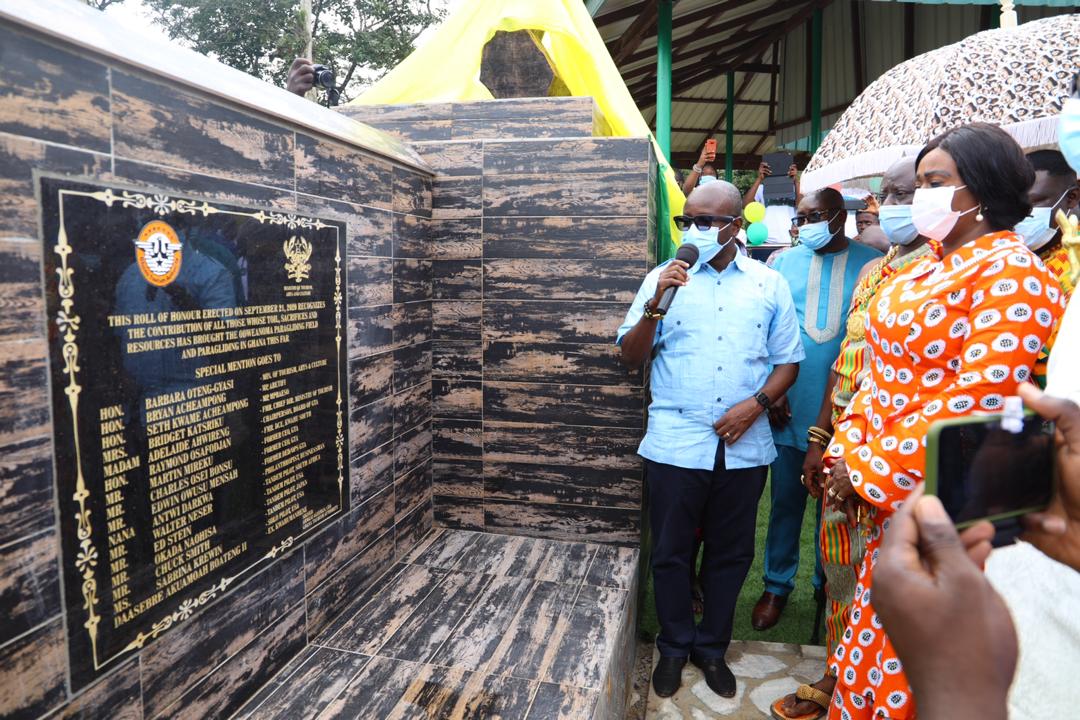
A ceremony has been held under the auspices of the Ministry of Tourism, Arts and Culture and its agencies at the Odweanoma Paragliding field to commission the upgraded paragliding field at Kwahu Atibie in the Eastern Region. The Paragliding Field has been improved into a model event ground suitable for any recreational activity of any kind. These include the construction of a new entrance post, fencing of the event grounds, paving of the entire area, construction of an enclosed VIP catering area, resurfacing of viewing partition among others.
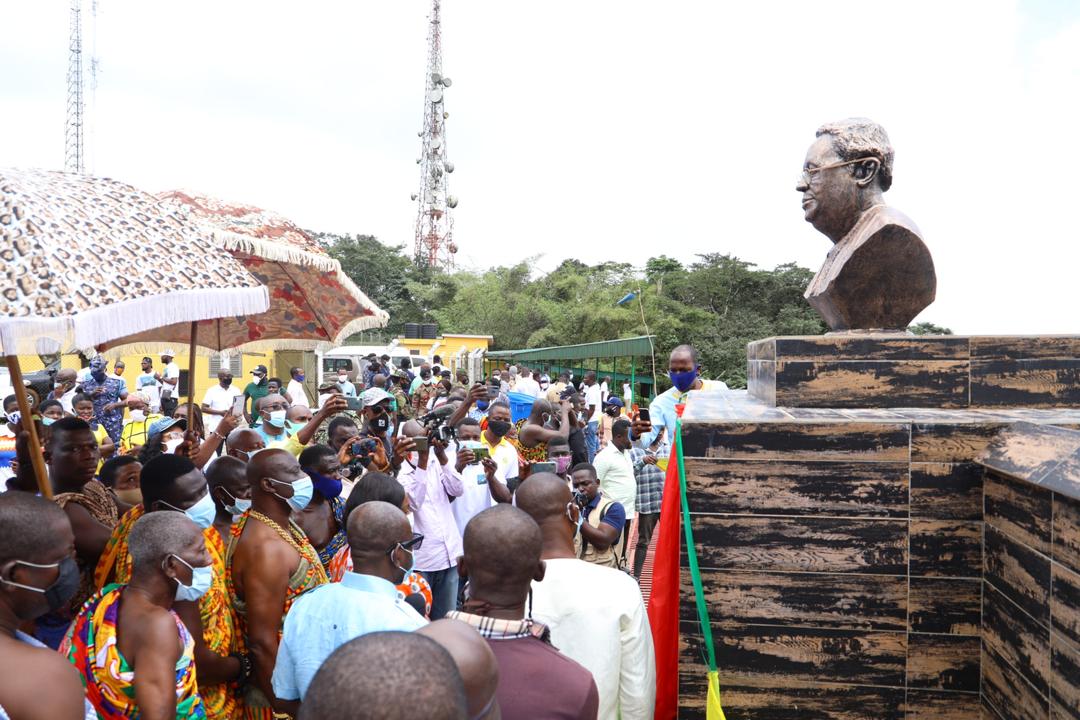
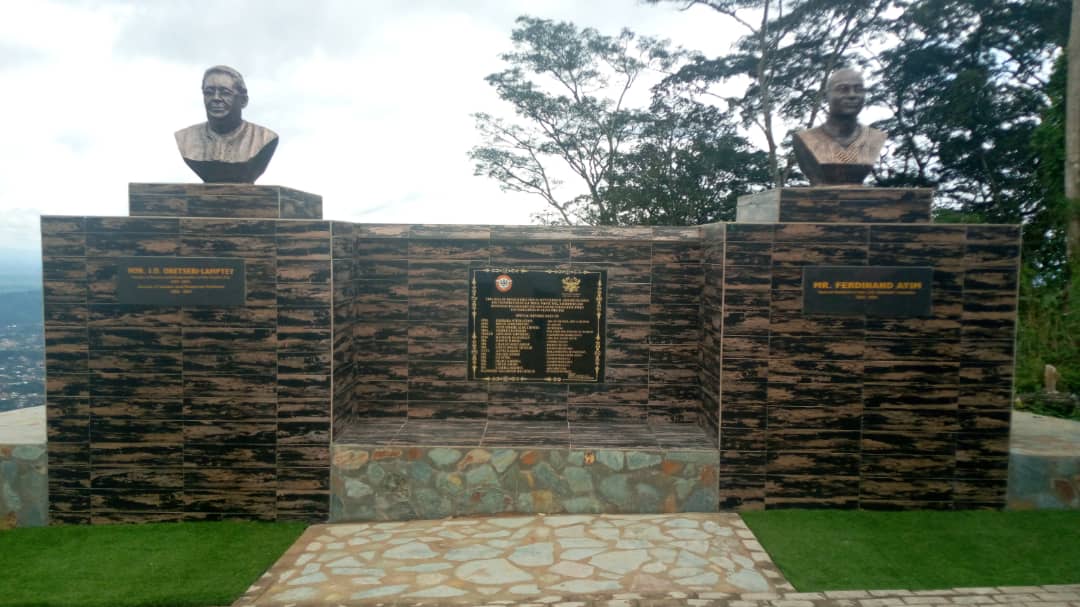
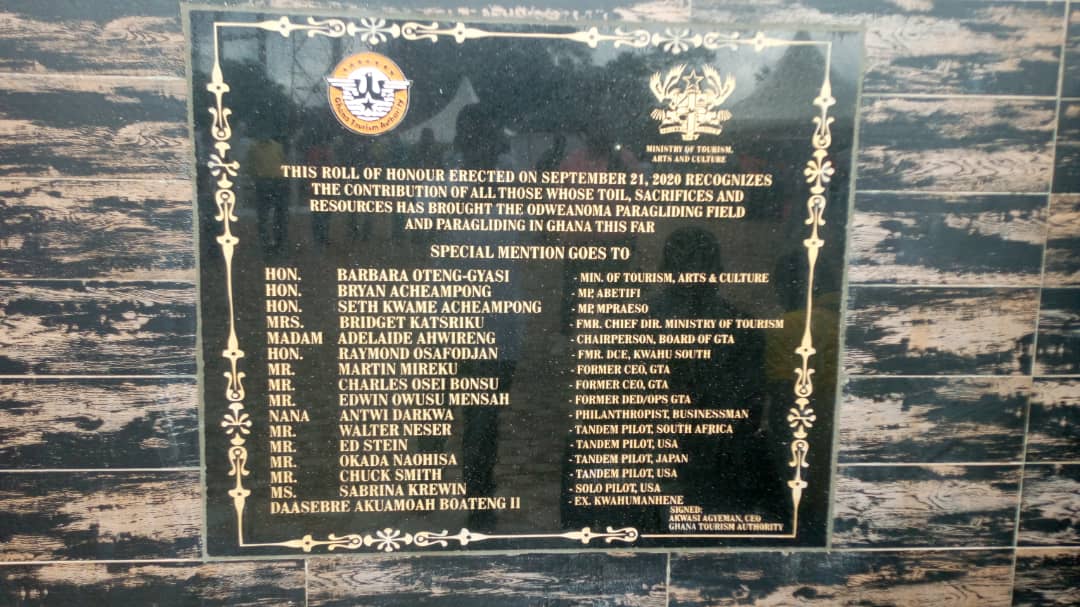
The busts of two noblemen who supported immensely in the development and growth of the sport in Ghana, Hon. Jake Otanka Obetsebi- Lamptey and Mr. Ferdinand Ayim, his Special Assistant, was also unveiled in honour of their hard work, dedication and visionary leadership in the development of Paragliding in Ghana.
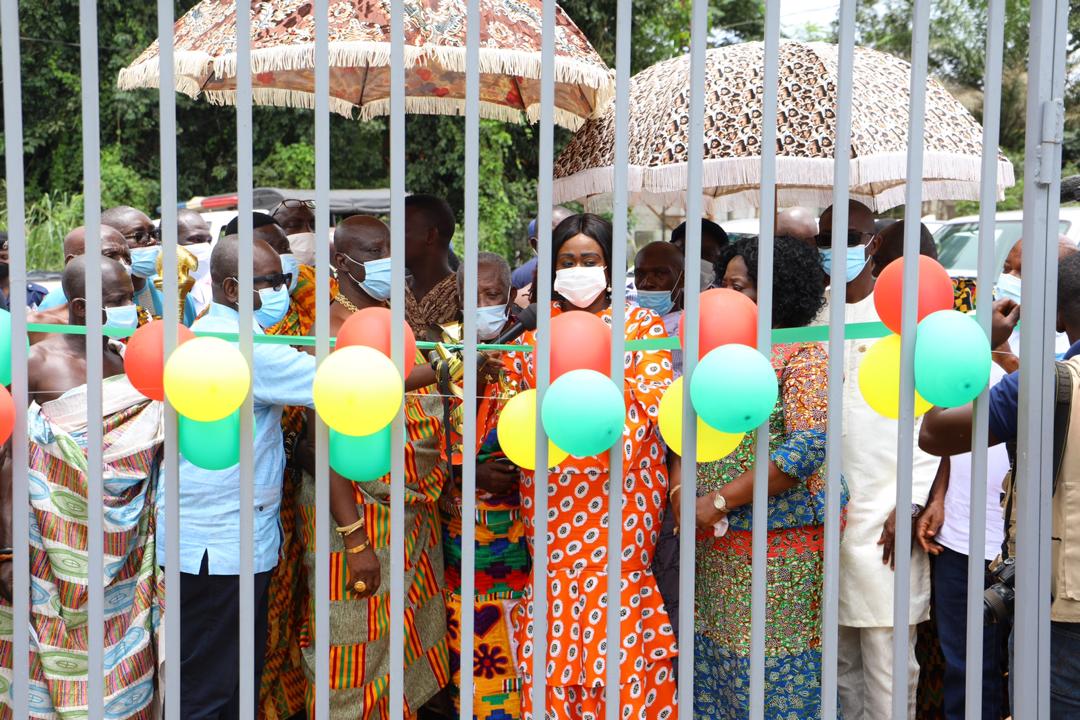
Furthermore, the Kwahu Professional Network (KPN) in collaboration with the Ministry of Tourism and its allied agencies launched the Second edition of “Yɛnkɔ” Kwahu, under the theme; Our home, Our strength, Our heritage as part of the activities to promote domestic tourism.
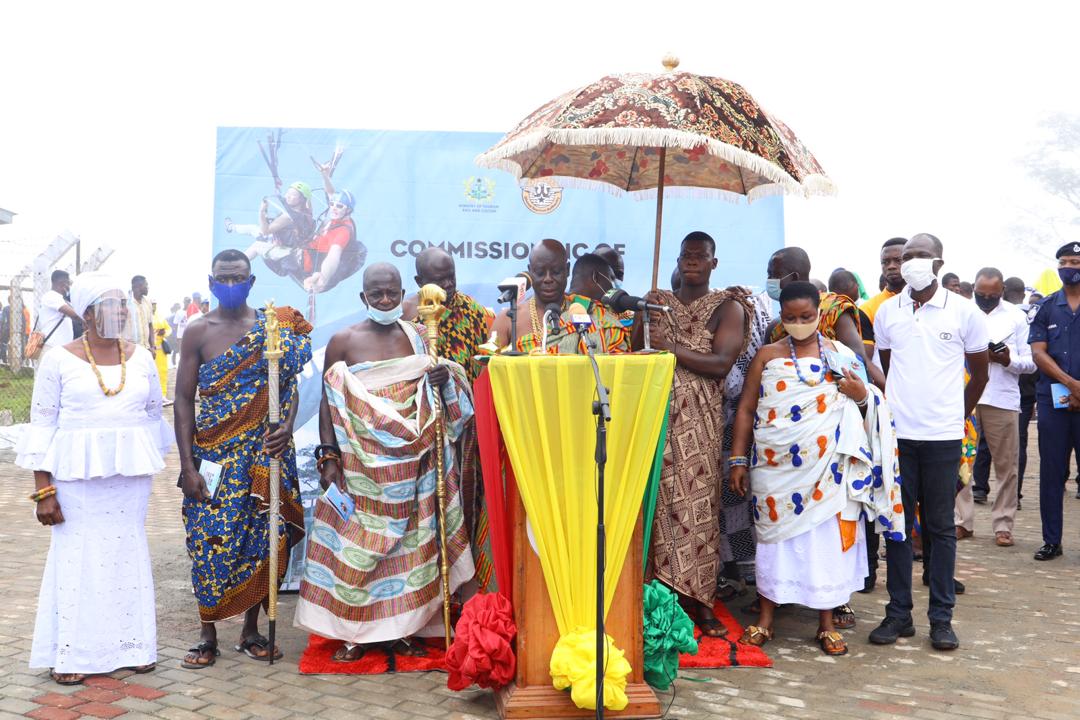
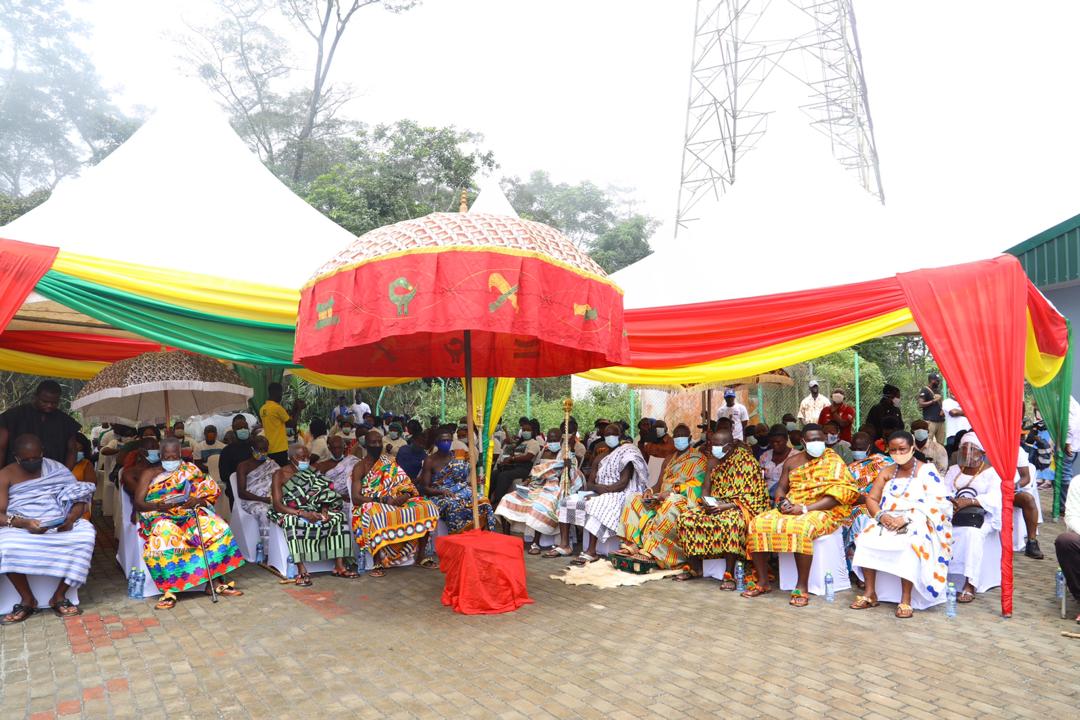
The event saw the Minister of Tourism, Arts and Culture, Hon. Mrs. Barbara Oteng- Gyasi, and her able deputy Minister, Alhaji Dr. Ziblim Barri Iddi, the Deputy Eastern Regional Minister, Hon. Samuel Aryertey and the Chief Director of the Ministry of Tourism, Mr. John Yaw Agbeko, the Board of Directors of GTA, led by Madam Adelaide Ahwireng and the CEO of GTA, Mr. Akwasi Agyeman. Other dignitaries include the DCE’s for Kwahu West and East, Hon. Emmanuel Atta Ofori Snr, and Hon. Isaac Agyepong, other heads of agencies of the Ministry of Tourism, and their staff.
The Traditional Authorities were led by the Mpraesohene and Benkumhene of Kwahuman, Nana Ampadu Daduam II, and Barima Kwame Asante Bediade II, Kwahuman Gyasehene and Atibiehene as well as the family of Mr. Ferdinand Ayim.
‘Beyond The Return’ Officially Accepting New Proposals For 2020 Events
19TH SEPTEMBER, 2020
ACCRA, GHANA
‘Beyond the Return’ has announced that event proposals are being accepted for programs taking place from September through December 2020. After last year’s successful ‘Year of Return’ campaign which included programs, events and festivals, there have been many requests for ‘Beyond the Return’ to have a platform to continue in these activities and provide new ways for the diaspora to continue to connect with Ghanaians through event programs.
“I’m really looking forward to the events this year. Especially the ones that will give back to Ghana through initiatives that seek to serve the local communities like the commissioning of boreholes we saw last year. It will be great to see more events that highlight Ghana’s culture as part of ‘Beyond the Return’ because it will expose diasporans to the diversity and richness of Ghana’s culture and heritage,” said Annabelle McKenzie, Manager of the Beyond the Return Secretariat.
Event proposals are officially being accepted digitally and a separate form must be filled out for each event using the ‘Beyond the Return 2020 Events Submission Forms’ available at www.beyondthereturngh.com. Hard copy submissions will not be accepted. Event organisers should prepare to explain how their programs fit into the ‘Beyond the Return’ initiative and its ability to include both the diaspora and local Ghanaian communities.
‘Beyond the Return’ is a 10-year initiative with the theme ‘A Decade of African Renaissance’ and its foundation is built on seven pillars: Experience Ghana, Invest in Ghana, Diaspora Pathway to Ghana, Celebrate Ghana, Brand Ghana, Give Back to Ghana and Promote Pan African Heritage & Innovation. Each of the pillars is important because it represents an area that ‘Year of Return’ received feedback from the diaspora and the local Ghanaian community on ways to strengthen engagement between our communities. It’s also the opportunity to create programs and events that represent each pillar. The Ghana Tourism Authority (GTA) is coordinating the project under the auspices of the Ministry of Tourism, Arts and Culture. Other collaborating organisations are the Office of Diaspora Affairs at the office of the President, the Ghana Investment Promotion Center (GIPC) and the Ghana Tourism Development Company.
To learn more about ‘Beyond the Return’ please visit the website www.beyobdthereturngh.com. Please send questions and comments to support@beyondthereturngh.com and you can also follow on social media @beyondthereturn.
20 Photos That Tell The Ghana Paragliding Development Story
“The paragliding festival has become one of the main pillars of the celebration of Easter in Kwahu. Over the past 15 years, the Odweanoma mountain has been home to several exciting paragliding flights. Since 2017, when we expanded the take off point to allow up to four take-offs at a time, the flights per day during Easter has increased from an average of twenty (20) to sixty (60). The infrastructural additions to the site is part of a plan to make the Kwahu Ridge enclave an all-year-round tourism destination” – Akwasi Agyeman (CEO-GTA)
Here is how Paragliding started and how we have created a world-class site for adventure sports tourism thanks to the late Hon. Jake Otanka Obetsebi Lamptey his Special Assistant Ferdinand Ayim, also of blessed memory who together with many others led by lead Pilot Walter Nesser helped kick-start the festival to coincide with the Kwahu Easter festivities.
Last Major Hurdle For Take-Off…
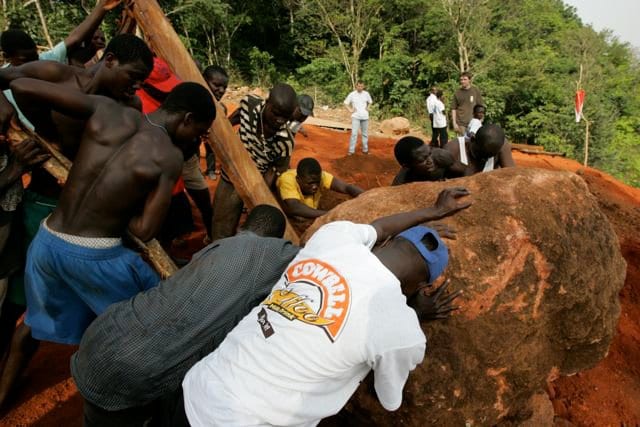
In April 2005, the first Paragliding Festival was launched by the late former Vice President, his Excellency Alhaji Aliu Mahama, to coincide with the Kwahu Easter festivities.
The Opening Ceremony…
The chiefs were there to offer libation as well as political heads and tourism officials
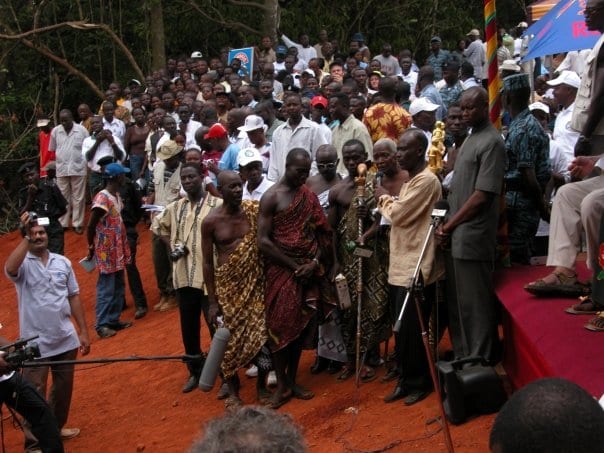
The First Flights…
After the ceremonies and speeches, things went underway.
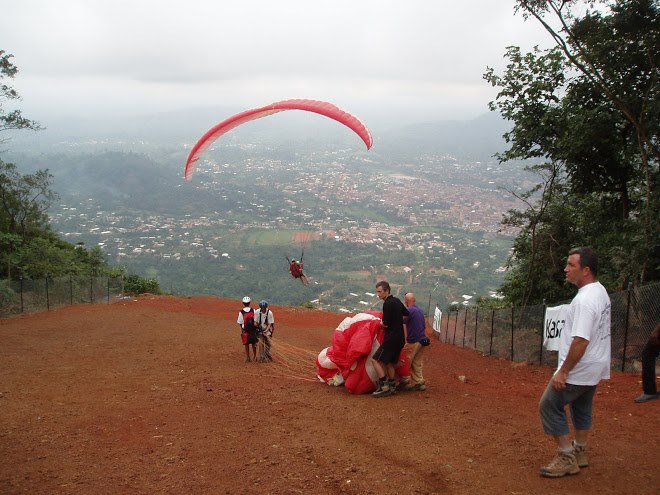
First Cameraman To Brave The Odds…

The Inquisitive Public Applauded…
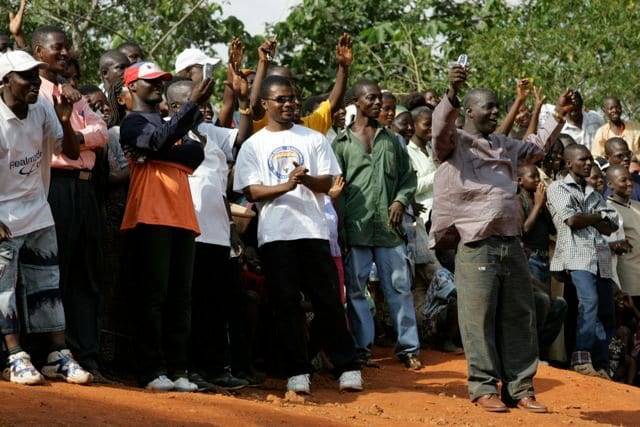
Others Tried To View From The Corners without any safe and secure place to stand…
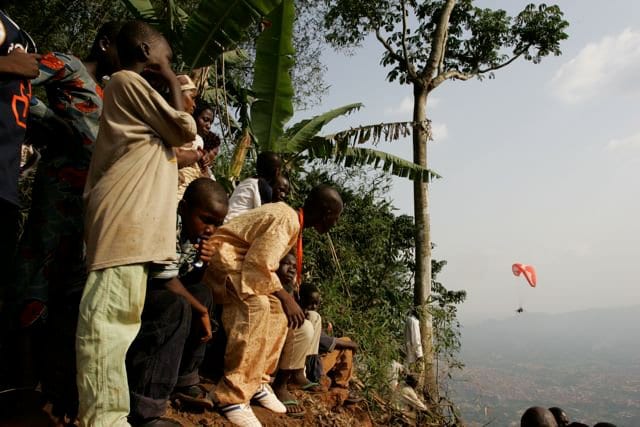
Then the first view from the sky (2005) dropped
We Invited More Pilots (6) in 2006 and grassed the take-off site
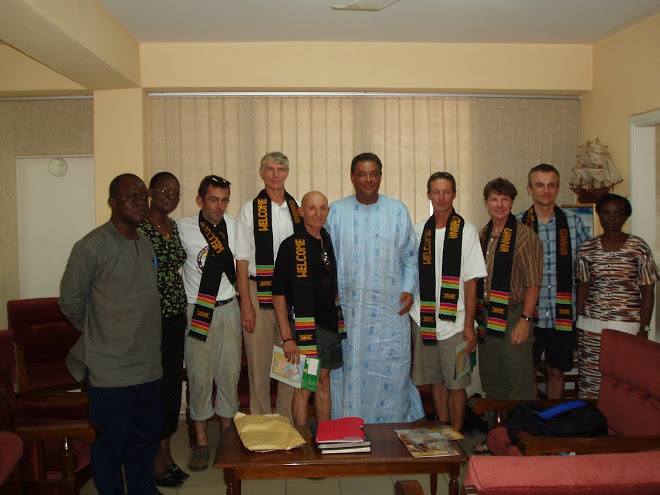
We provided a viewing/seating platform on both sides for Viewing Public in 2010
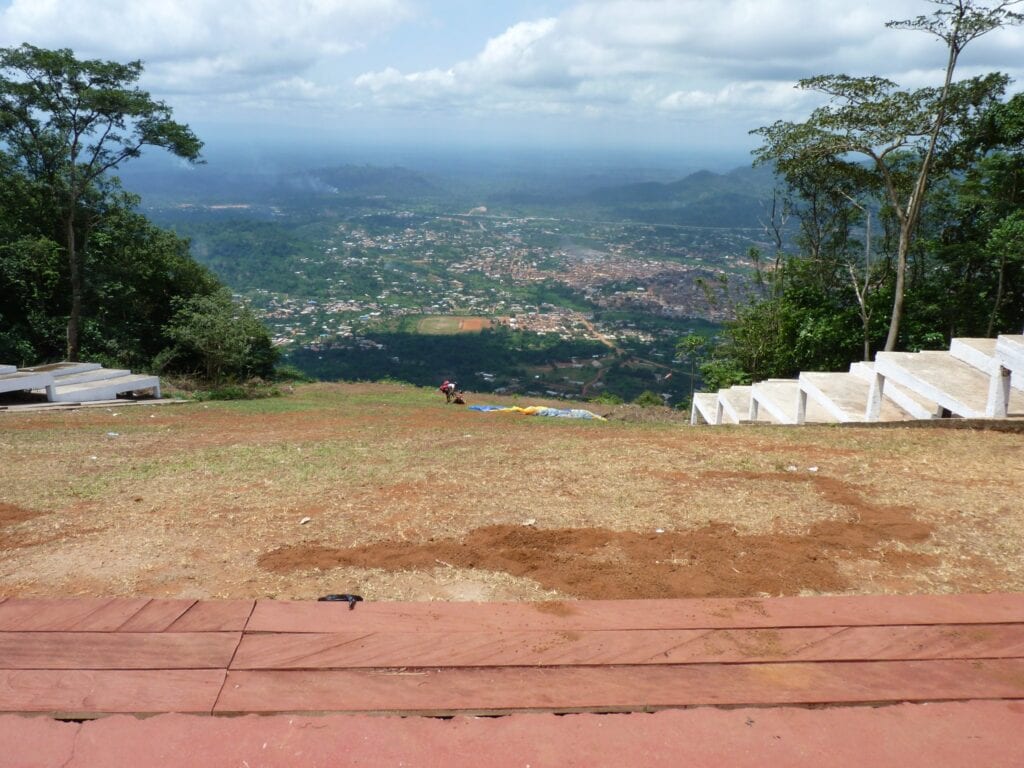
We then took steps to start training Ghanaian Pilots…
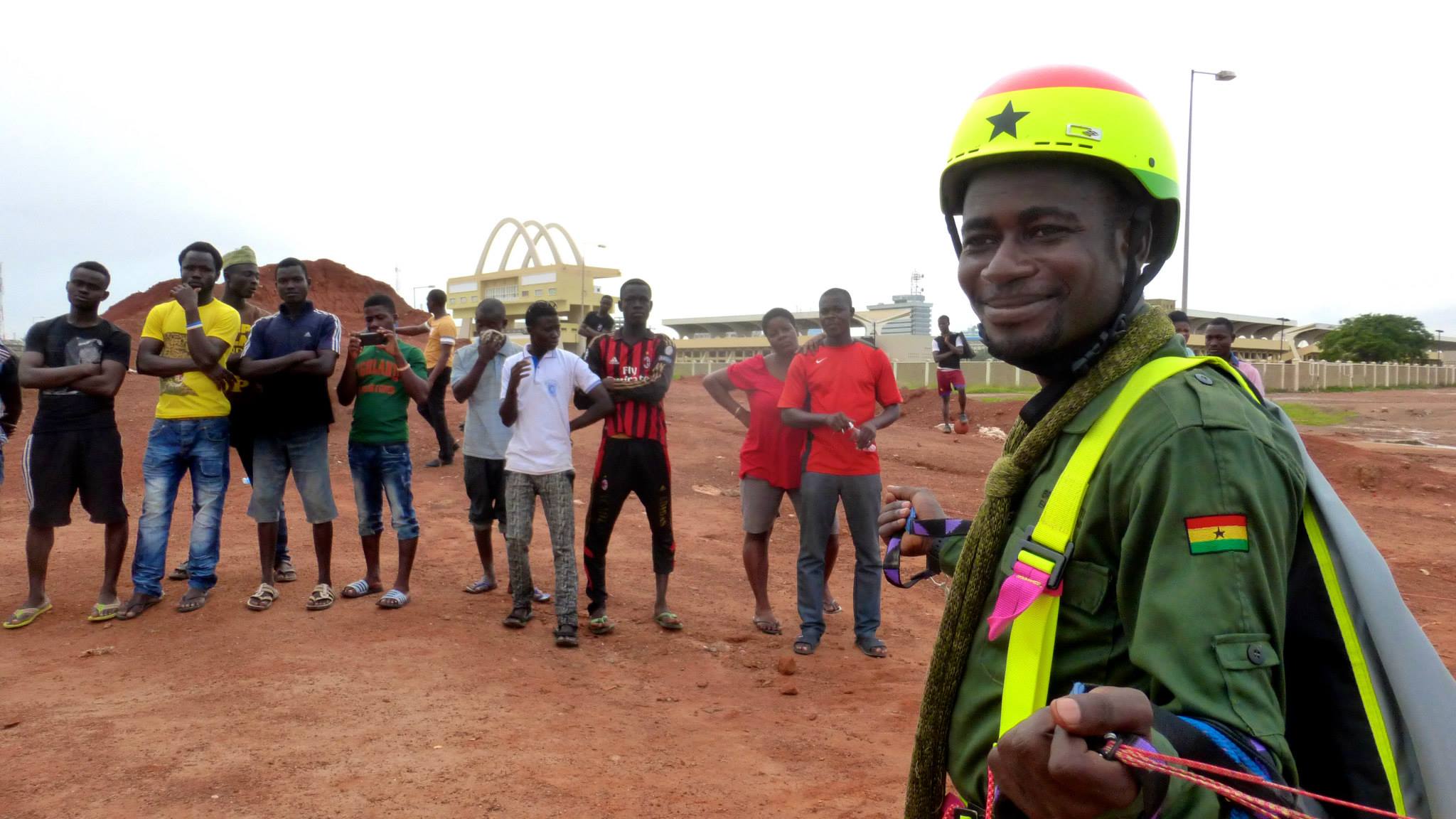
We then focused on more public centered facilities from 2017
Expanded/Re-grassed take-off to take 4 tandem-gliders for launch

Construction of Permanent Viewing and Seating Pavillion
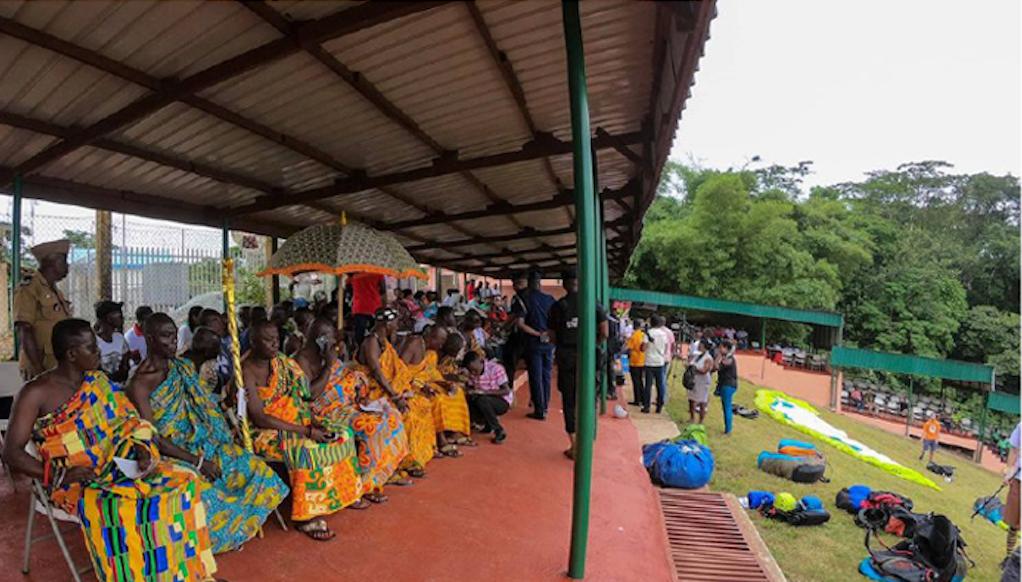
Provision of a modern washroom facility
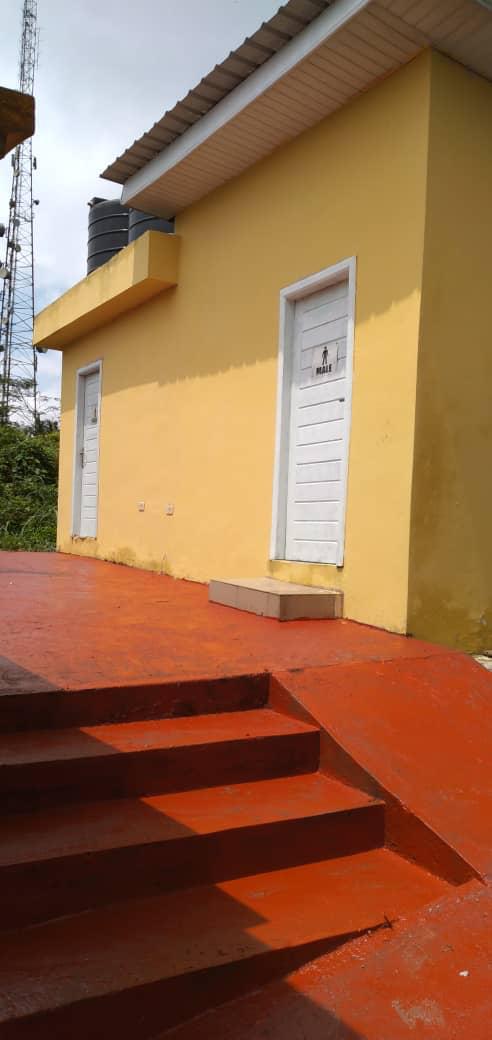
Food court for catering services
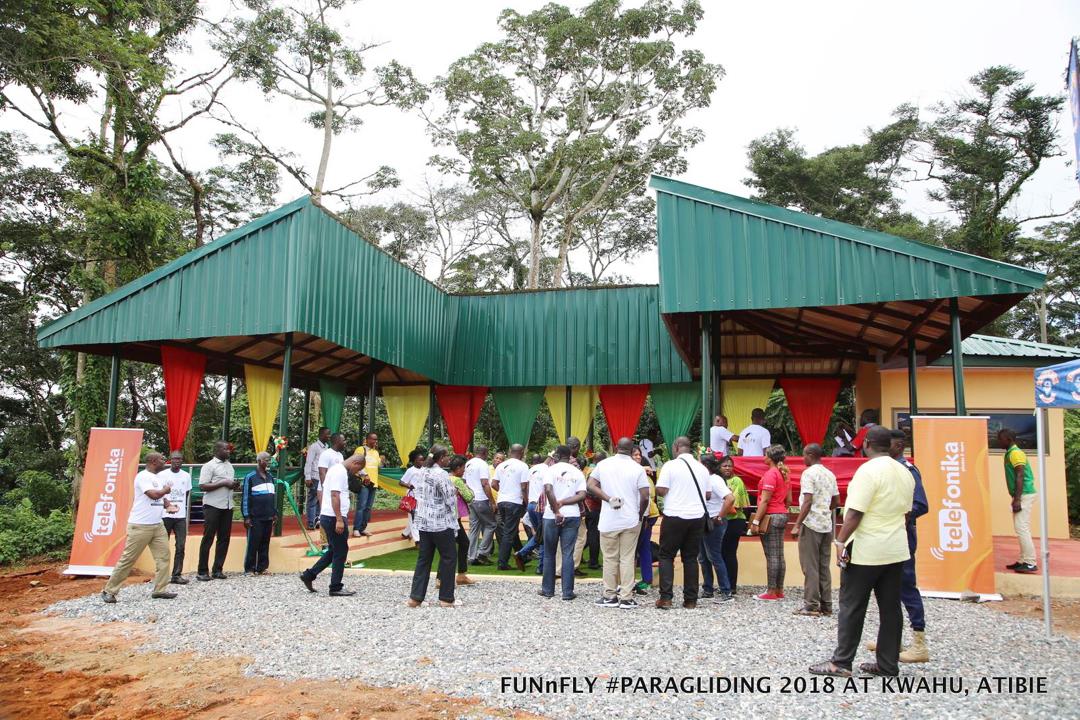
New VIP lounge
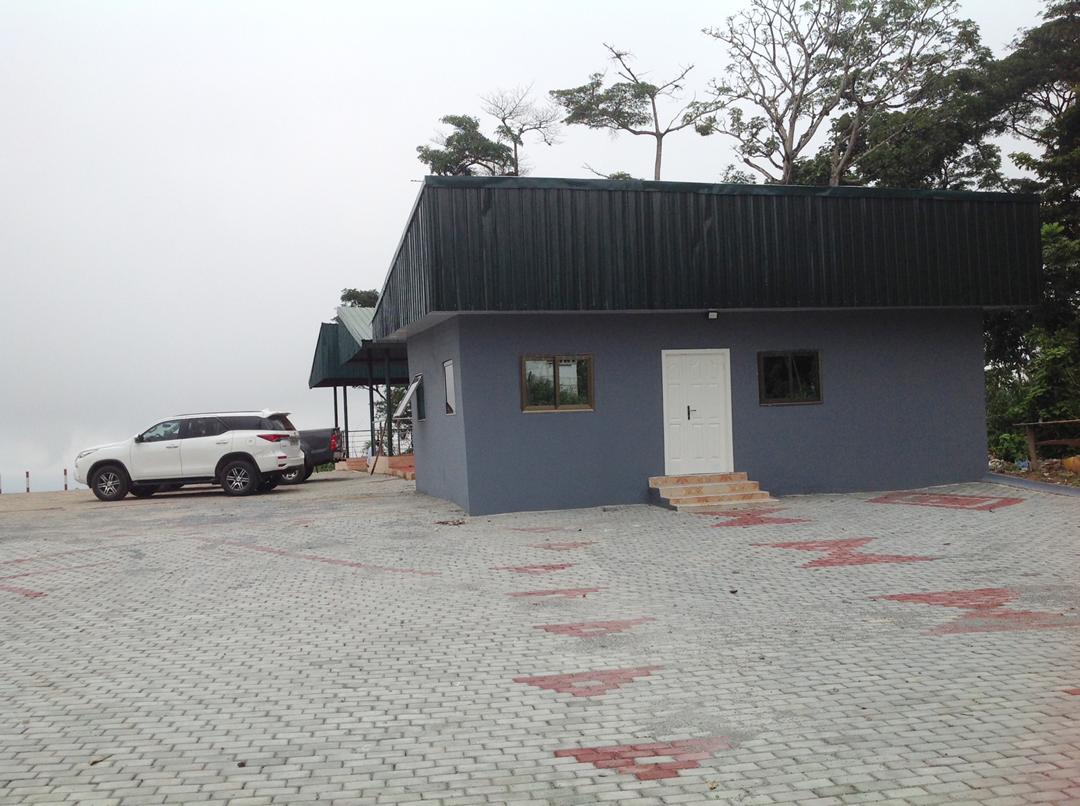
A paved and gated compound
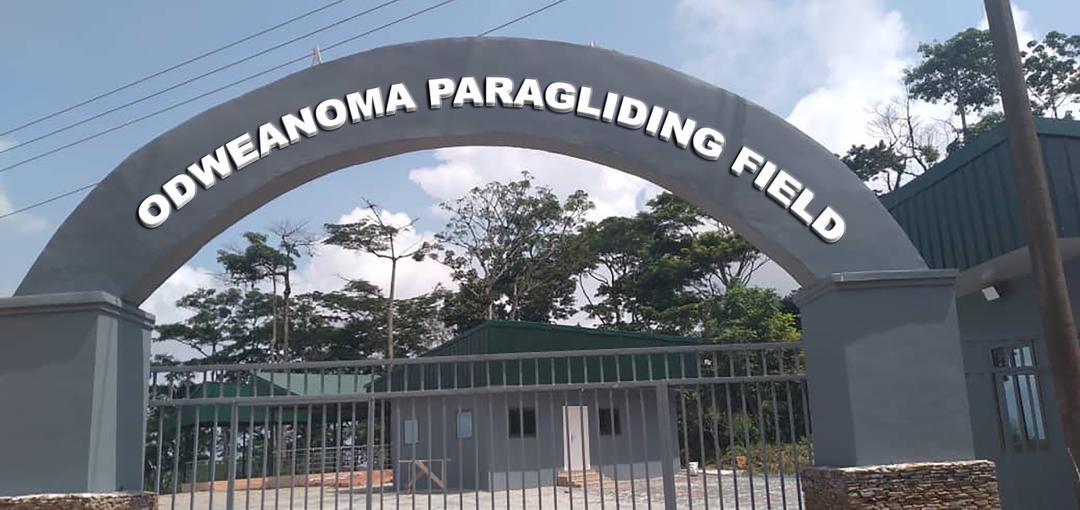
Cheers to our next big move…
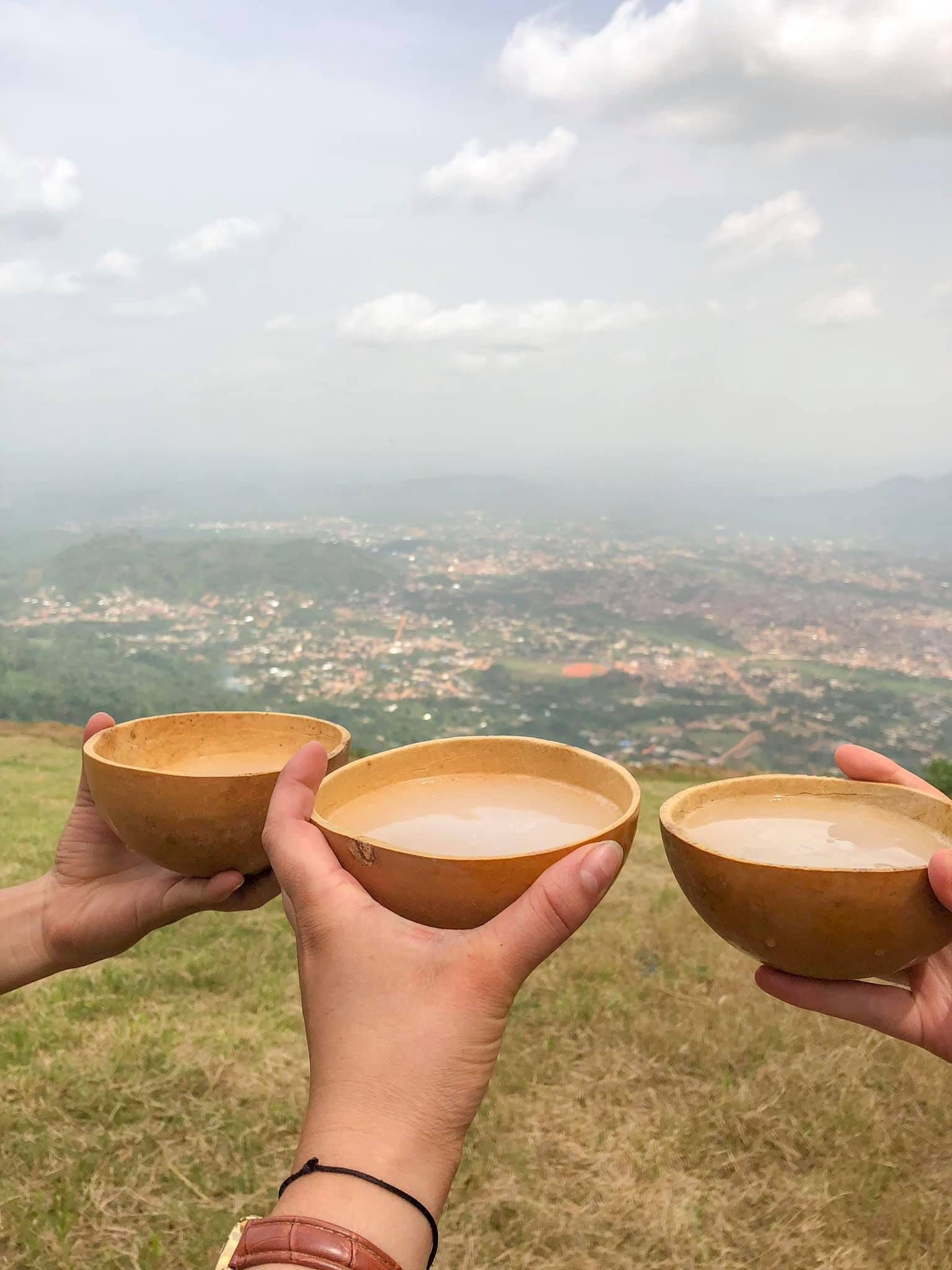
Join us as we honour and remember many who contributed to this story…
2020 May have been dark but…
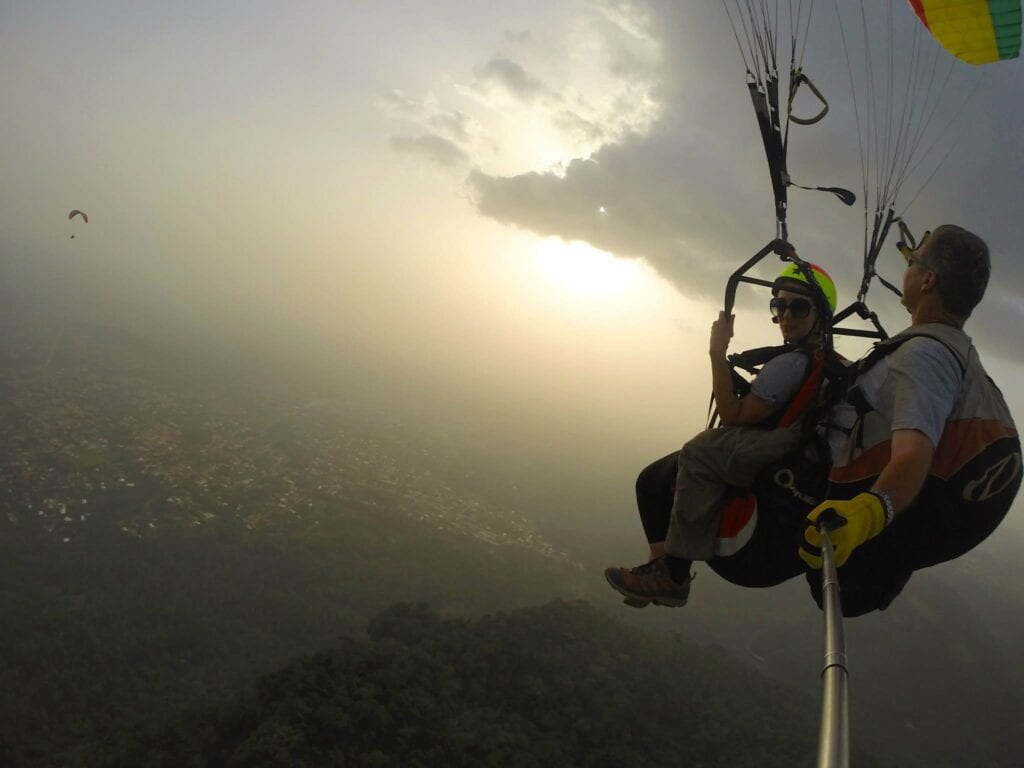
Conquer your fear, Be a Hero and Join us in 2021

#GhanaParagliding #FunNfly
Naomi Osaka Wins US Open, Honours Her Ancestral Heritage With Kente Headgear
Naomi Osaka is the number one ranked female tennis player by the Women’s Tennis Association, a three-time Grand Slam champion and she recently won the title at the U.S. Open. She didn’t shy away from using her platform to show support and solidarity in the Black community throughout this year’s US Open tournament. Osaka is of Haitian and Japanese heritage and recognizes the power of using her voice on such a big platform. “I feel like I’m a vessel at this point in order to spread awareness,” she said.
The 22-year old made strong statements by wearing seven different face masks in seven matches that bore the names of Black people who have been killed by police and whose names have been part of the ongoing protests about racial injustice in America.
Osaka said that she used her platform to protest because she wanted to get more people talking about it. She admitted that she lives in a bubble and may not see what’s truly happening on the ground, but she knows through social media and the news what has been happening to Black people. Each of the masks she wore had the names of Breonna Taylor, George Floyd, Philando Castile, Elijah McClain, Trayvon Martin, Ahmaud Arbery and Tamir Rice. “I feel like the point is to make people start talking,” she said to the press. She was asked by the media what the message was she wanted to send, and she responded with “Well, what was the message that you got is more the question.”
As the daughter of a Haitian father and Japanese mother, she recognizes her culture and heritage and often makes reference to her Haitian roots. In a tweet during the US Open she said, “I would like to thank my ancestors because every time I remember their blood runs through my veins I am reminded that I cannot lose.” The people of Haiti have direct ties to Africa with lineage to a few nations including Senegal, Ghana, Nigeria, Togo, Benin and the Congo. Haitian culture still has some similarities to West African culture, including the bold printed fabrics sometimes worn.
Osaka made a style statement after her match wearing a vibrant dress with traditional Ghanaian Kente as her headwrap after her U.S. Open win. “You already know I had to bring out the headwrap for this one,” she wrote on her Instagram post. This was a tribute to her Haitian heritage, which is deeply rooted in Africa.
By Ivy Prosper
Ghana Arts And Culture Awards 2020 Officially Launched
The 2nd edition of the prestigious Ghana Arts and Culture Awards (GACA2020) has been launched in Accra with nominations for the event also unveiled.
The ceremony which took place last Friday at the Accra Tourist Information Centre saw high profile personalities in the industry coming to grace the occasion and to give their full support to make the ceremony a memorable one.
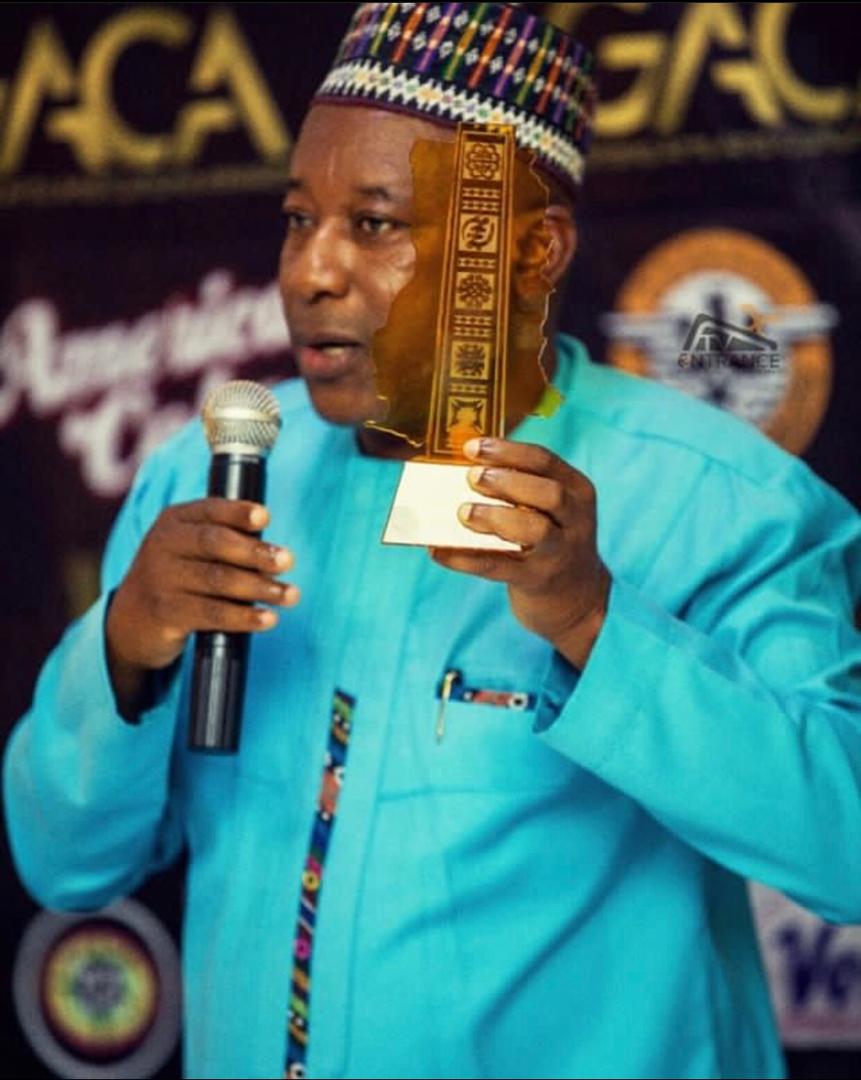
In attendance was the Deputy Minister of Tourism Arts and Culture, Executive Director of National Commission on Culture, acting president of the Musician Union of Ghana among other Directors of Culture from the various regions in Ghana as well as musicians and filmmakers.
This year’s awards will see 19 categories of individuals and institutions being honoured. The categories include Honorary Award, Lifetime Achievement Award, Outstanding Cultural Personality of the year, Cultural Heritage Entrepreneur of the year, Corporate Support for Arts and Culture, Traditional Dance Group of the year, and Traditional Music Group of the year.
Others are Cultural Television Programme of the year, cultural Radio Program of the year, Ghanaian Visual Artist of the year, Ghanaian Artiste of the year, Ghanaian Movie of the year, Ghanaian Fashion Designer of the year and Spoken Word Artist of the year.
The rest are Art Festival Event of the year, Indigenous Caterer of the year, Outstanding Cultural Theatre Performance of the year, Discovery of the year, Arts and Culture Media of the year.
Speaking at the launch and nominees announcement, the Deputy Minister of Tourism, Arts and Culture, Ziblim Iddi said the Ministry found it necessary to endorse the event which celebrated excellence in the arts and culture industry. He said the Ministry will lend its support to make this year’s event a success.
The award is aimed at appreciating and acknowledging the key players who have contributed to the Arts and Culture throughout the years.
Mr. Mike Frempong, the Director of Communication and Research at the Arts and Culture Company, organizers of Ghana Arts and Culture Awards said, “This year’s event will be one of the greatest events in the year for Ghanaians especially to those who deal in the Arts and Culture.
We know the COVID 19 had affected a whole lot of things but we still see the need to honor our industry players. Preparations are well ongoing for the main event which is expected to take place on the 14th November 2020”.
He further urged the nominees to keep harnessing their talents in order to grow the country’s arts and culture through their works.
‘Beyond the Return’ – 7 Unveiled Pillars Promises Deeper Connection With Diaspora
The official unveiling of the ‘Beyond the Return’ Pillars took place at the National Theatre on 9th September 2020. ‘Beyond the Return’ is a 10-year project with the theme, ‘A Decade of African Renaissance’ and its foundation is built on the seven core pillars which were unveiled during the event which was filled with a colorful display of dance, music and theatrical performances from the National Theatre’s dance ensemble, dramatic actors and the National Symphony Orchestra. Beyond the Return is the follow-up to last year’s successful ‘Year of Return’ campaign, which commemorated the 400-year anniversary of the first documented ship of enslaved Africans to arrive in Virginia, U.S.A.
CEO of Ghana Tourism Authority, Mr. Akwasi Agyeman, is also the Coordinator for the Beyond the Return Steering Committee. In his speech he acknowledged the loss of African American actor Chadwick Boseman, whose unexpected death last month shocked the world. He died after a 4-year battle with colon cancer. The actor played a pivotal role as the lead character in the movie, ‘Black Panther’. The film contributed to changing the narrative of Africa and proving that Black Superheroes and stories of Africa can connect with all audiences. “May I request that we all rise for a minute of silence? One for our ancestors who went through the torturous journey of slavery, two, for our brothers and sisters who have fallen in recent times, especially our brother Chadwick, of Black Panther fame,” said Mr. Agyeman. He also asked that we honour the late Elolo Gharbin, who died recently. He was a Lecturer at the University of Cape Coast and a strong pillar in PANAFEST and Emancipation.
Mr. Agyeman chronicled the beginnings of the Year of Return and stated that this new journey of Beyond the return would have deeper conversations among the global African family. Beyond the Return, will work towards building bridges and creating activities, events and policies that are inclusive and integrate our local community in ways they can connect with our global African diaspora. Most importantly there is work being done to support the diaspora’s needs when it comes to repatriation.
“Each of the 7 pillars being unveiled today touches on the many areas that are key to developing Ghana and providing an environment that supports the diaspora,” said Hon. Barbara Oteng-Gyasi, Minister of Tourism, Arts and Culture when she delivered her keynote address. She expressed that the Beyond the Return committees are listening and working diligently to address the concerns expressed by the diaspora community, especially when it comes to repatriation. “Ghana is currently developing a homeland return legislation to facilitate various forms of migration and integration into the country for our diasporan kith and kin,” she said. “Ghana as a leader in pan Africanism, through the Homeland Return Act, will offer the opportunity for citizenship to our brothers and sisters.” This is welcome news to all the diasporans who have been asking how they can also become Ghanaian citizens.
The Senior Minister, Hon. Yaw Osafo Maafo, recognized the significance of the Year of Return, as he officially unveiled the pillars for Beyond the Return. “One cannot speak of Beyond the Return without mentioning the Year of Return in 2019, which was a major landmark campaign targeting the Historical African Community outside our continent,” the Senior Minister said. “Over the next decade, the project seeks to consolidate the gains of the Year of Return and grow tourism in the country, showcase its investment potentials and solidify its diaspora engagement programs to promote the African Renaissance.” The seven pillars unveiled during the event are, Experience Ghana, Invest in Ghana, Diaspora Pathway to Ghana, Celebrate Ghana, Brand Ghana, Give Back Ghana and Promote Pan African Heritage & Innovation.
The unveiling of the pillars was a historic event that has kickstarted a new chapter in Ghana’s journey of reconnecting with the global African family.
Photos: Kotoka Airport Receives First Passengers After Re-Opening
Yesterday, September 1, 2020 the Kotoka International Airport received about 200 passengers arriving on three (3) separate flights since President Nana Addo announced the reopening of Ghana’s Airport. This comes on the heels of the recent certification of Ghana as a #SafeTravels destination by the World Travel and Tourism Council.
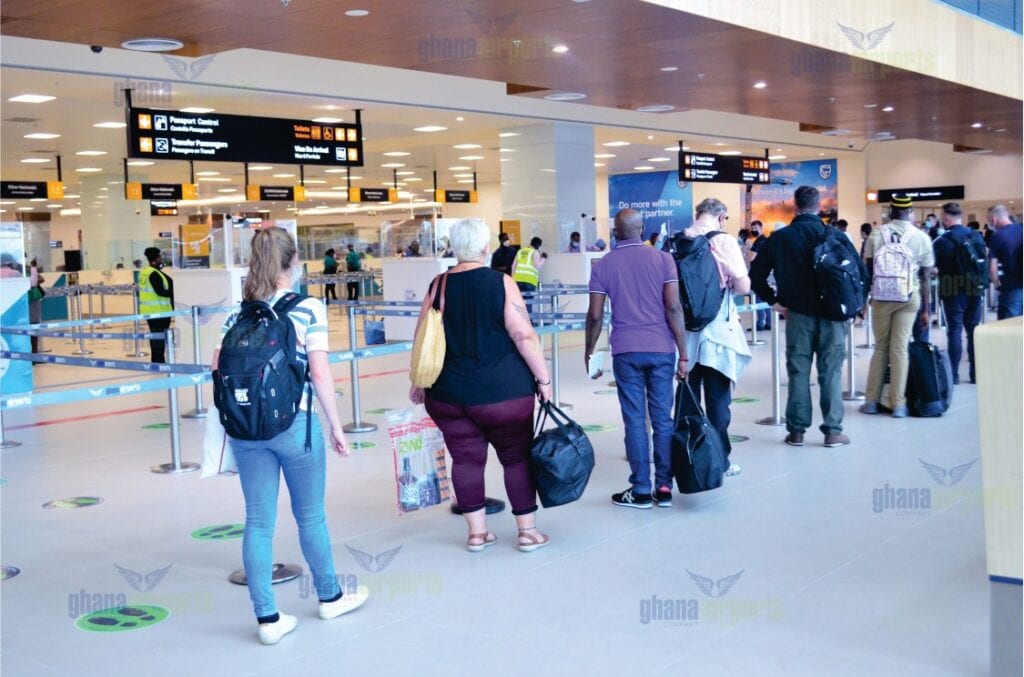


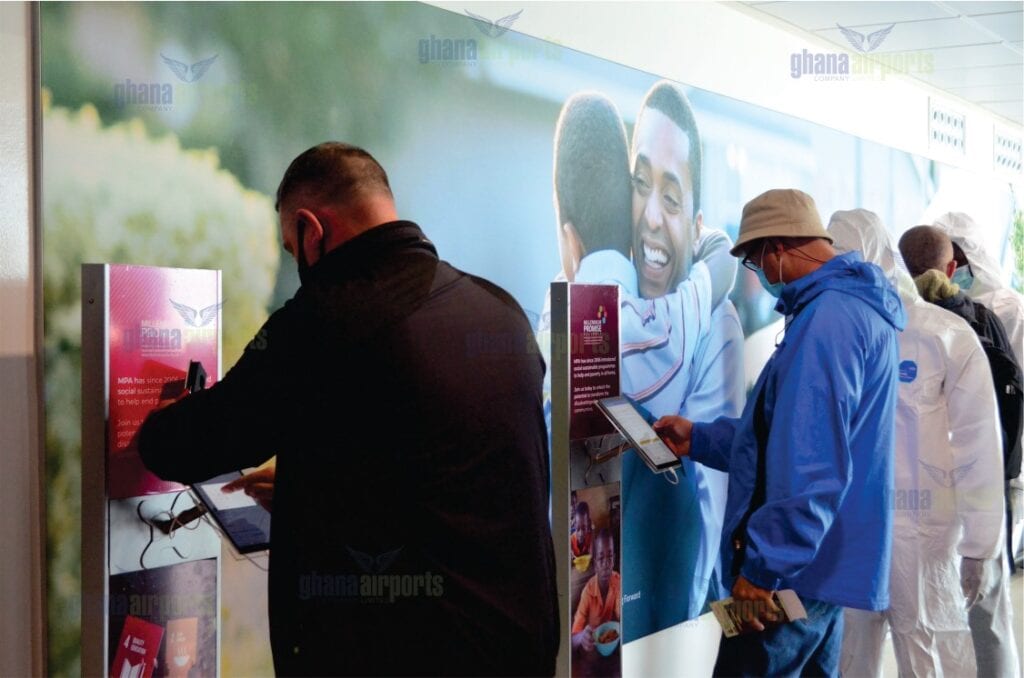
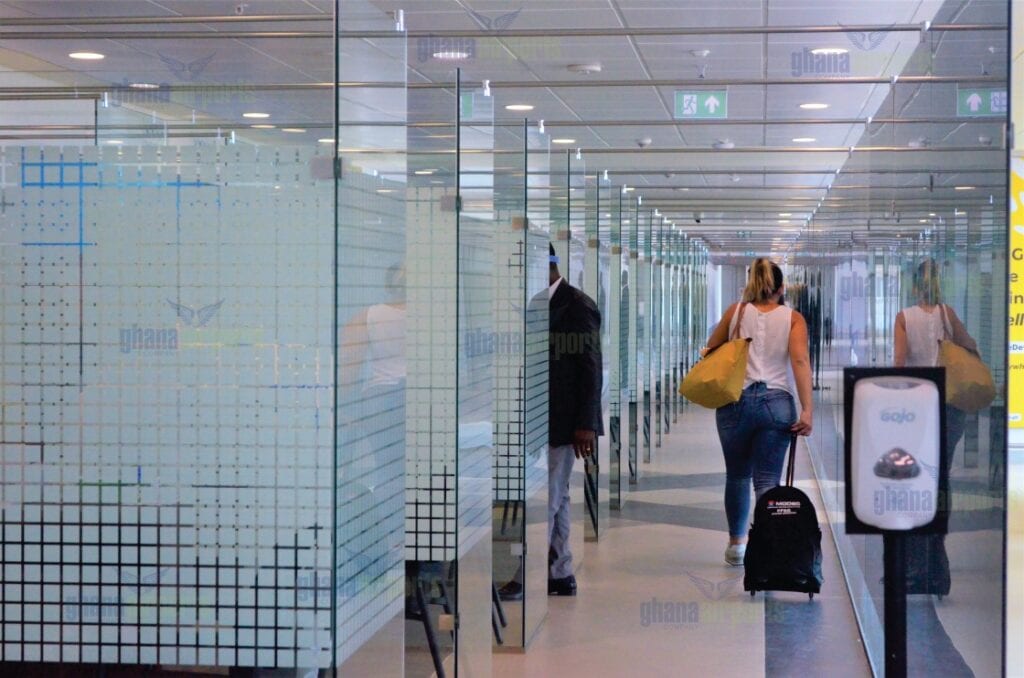

Beyond the Return Diaspora Features – Rashad McCrorey Settled into Life in Ghana During Pandemic
Since Ghana’s borders were closed in March, due to the Covid-19 pandemic, there have been thousands of people who were in the country on a visit for travel, business or leisure, who have been stuck within Ghana’s borders. Most are hoping Ghana would open soon so they could return to their respective countries. For many, it’s been a scary situation, while for others, it’s actually been more of a safe haven while watching the rest of the world battle with the Covid-19 outbreak.
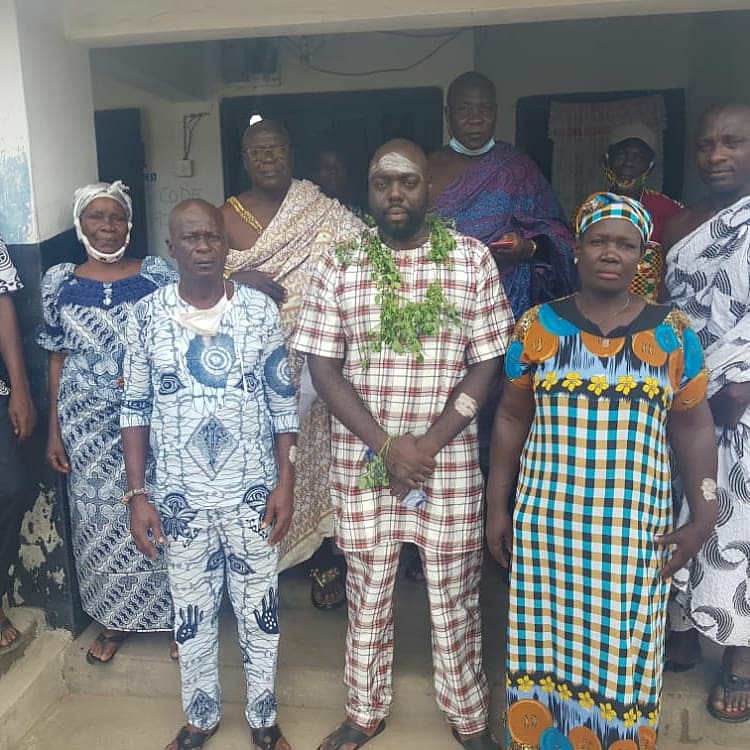
For African American Entrepreneur and Writer, Rashad McCrorey, what started off as a possible scary situation, has turned into one of the greatest blessings. He had travelled to Ghana earlier this year for business shortly before Ghana confirmed its first few cases of Covid-19. As concerns grew over the danger of this global health crisis, Ghana’s President Nana Akufo-Addo made the decision to close the country’s borders. “At first I was scared,” McCrorey said when asked about his initial feelings when the pandemic broke out. “…but I reminded myself that fear is always a sign for opportunity. Once I calmed myself down, I carefully evaluated all my options.” He said he spoke with his mother and some of his Ghanaian associates in the country and he was able to conclude that his best decision was to stay in Ghana. As the United States arranged for repatriation flights back to the U.S., he could have left Ghana, but decided to stay.
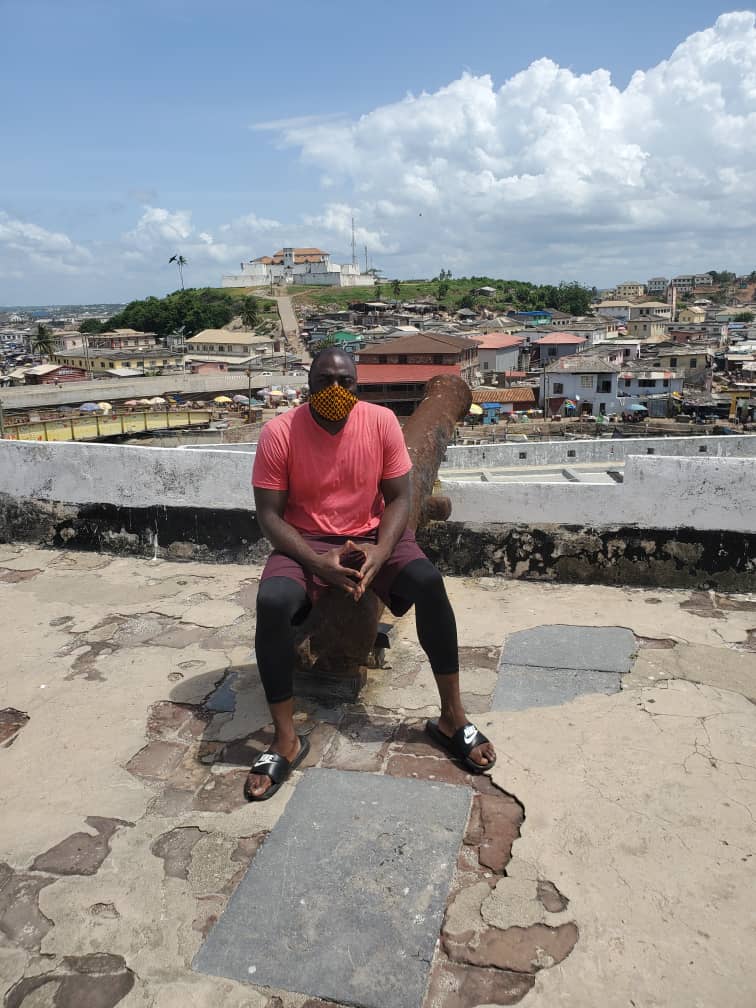
McCrorey is from New York City, which was America’s Covid-19 epicentre, at the time he was making the decision to remain in Ghana. As he watched the news and what was happening there he was very concerned if going back there would be a wise decision. “I thought about my health, as I have chronic asthma,” he said. “..and what effects Covid-19 in New York City would have on my lungs.” He is the founder of Africa Cross-Culture, a travel company that specializes in back to Africa trips to Kenya, Nigeria, Egypt, Rwanda and Ghana. Because of the type of business he does, he thought staying would also be a wise business decision. He could better promote Ghana while he was here rather than in lockdown in New York.
“I believed that being an American in Ghana during the pandemic would be a great news story which it has proven to be. Especially considering my circumstances of only planning to be in Ghana for 2 to 3 weeks for business and now entering my sixth month in Ghana and knowing my stay is truly indefinite,” he said. Since being in Ghana during this time, McCrorey has gained media attention from news outlets in America and here in Ghana. He’s been able to give his perspective being an American in a West African country during a global pandemic. He has even become a contributing writer with reputable media outlets in Ghana and abroad.
Originally staying in Accra, he moved to Aburi when the lockdown started and now he’s fallen in love with the Central Region of Ghana and has spent a significant amount of time in Cape Coast and Elmina. He has connected with people in the diaspora community who have settle in the region. He says it feels most like home in the Central Region.
McCrorey said that he has always had a desire to visit Africa and said his late father was a true Pan Africanist. He says the urge to come to Africa started when he was just six years old. “My dad taught me about the great kings and queens of Africa. He taught me the practice of ancestral worship, meditation and thinking outside the box using intuition.” He speaks highly of his father’s influence on him when it comes to the love of Africa. “…anything I accomplish in my role of the African diaspora is attributed to his teachings,” he said.
His trip to Ghana this year is not his first. “Between 2015 to 2018 I had already visited Ghana more than a dozen times,” he said. “When I first heard about the ‘Year of Return’ initiative it was a dream come true. My mission and vision was for black Americans returning to Africa…it was like the completion of my dream coming into reality. Finally, stereotypes about Africa will be debunked by the masses.” During the ‘Year of Return’ 2019, he brought four different tour groups to Ghana with a total of 102 guests. He said that it was good that black Americans now have African tourist destinations and not just the same old non-African places they are used to like Cancun, Dubai and countless other places.
When President Nana Akufo-Addo announced 2 weeks ago that there was a possibility of the borders opening soon, there was a glimmer of hope for travellers stuck both in and out of the country. On Sunday August 30th, the president announced the official reopening of Ghana’s borders by air. Kotoka International Airport will resume operations on September 1, 2020.
When asked his plans once the country opened McCrorey said he will have to be strategic and consider all his options. He said it would depend on what benefits there are in staying in Ghana versus returning home. He suggested the possibility of simply travelling to Egypt from Ghana before even going back to the United States. “I have a long-term plan, but I am also aware that opportunities can come at any time that could extend or cut short my stay,” he continued. Even though he has been deliberate with his time in Ghana, he says the unknown still lies in returning home to the U.S.
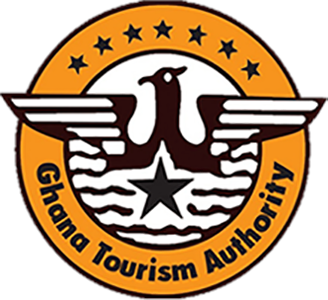

 Call Center
Call Center
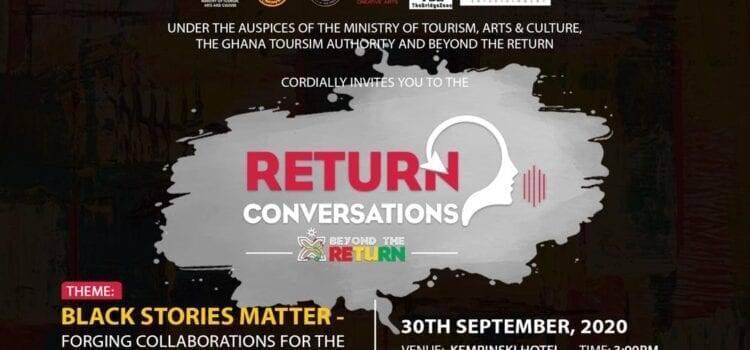
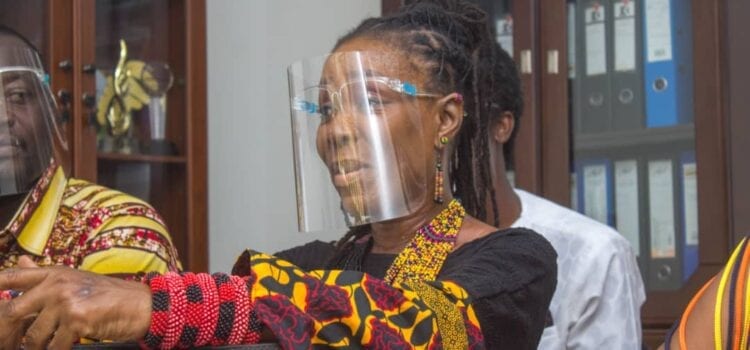
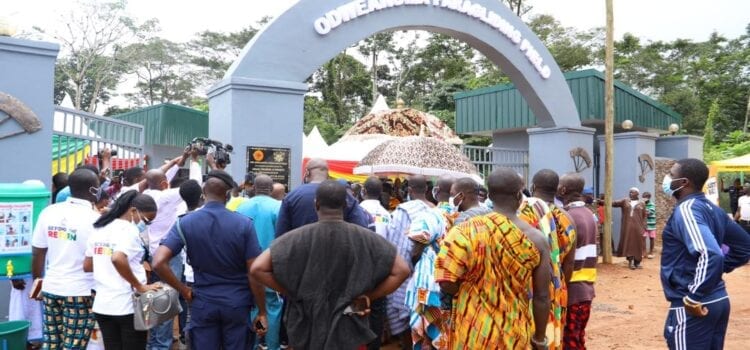
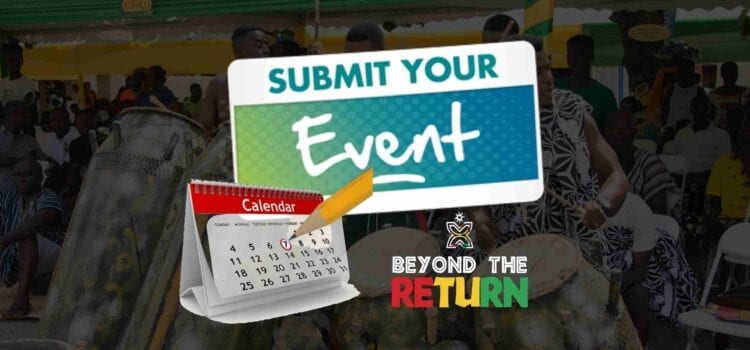
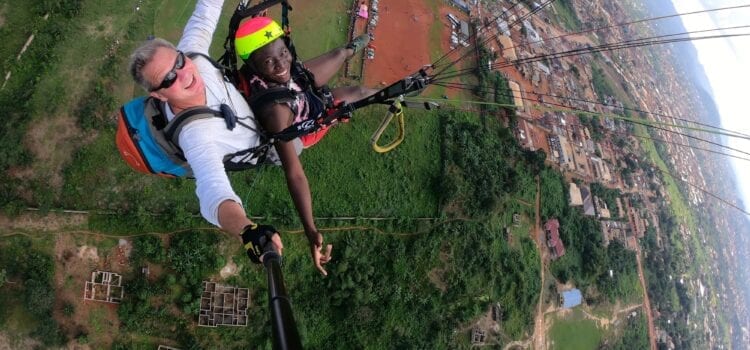
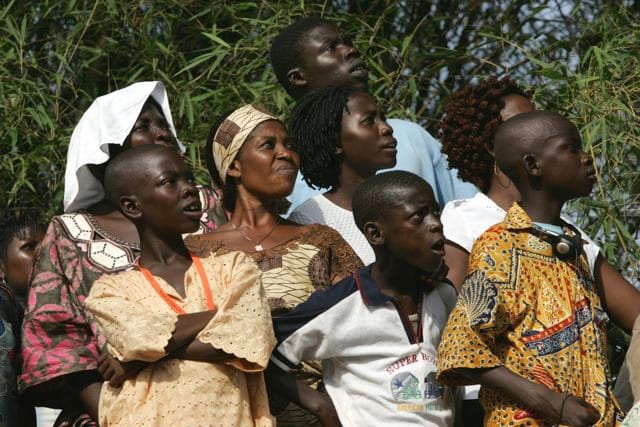
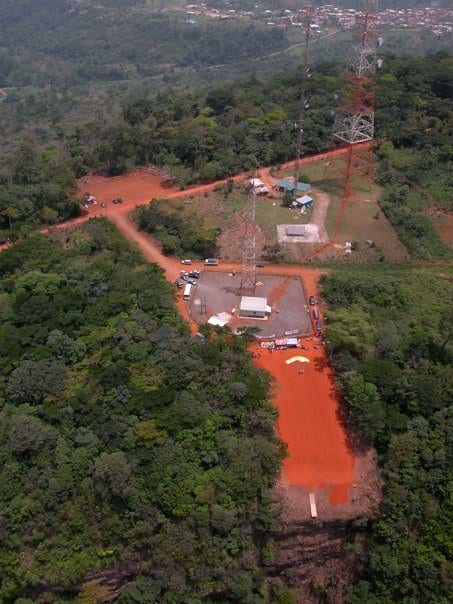




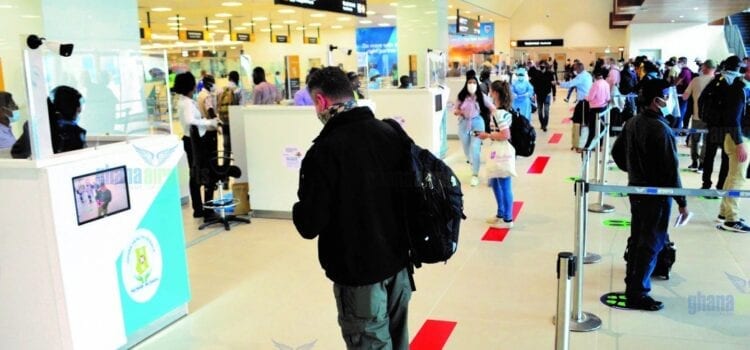
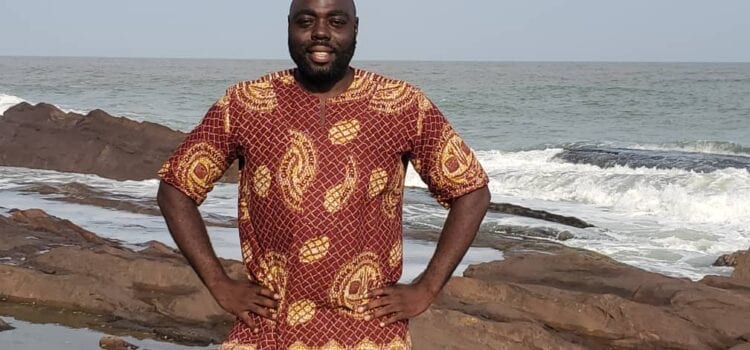
 Call Center: 0307007100
Call Center: 0307007100